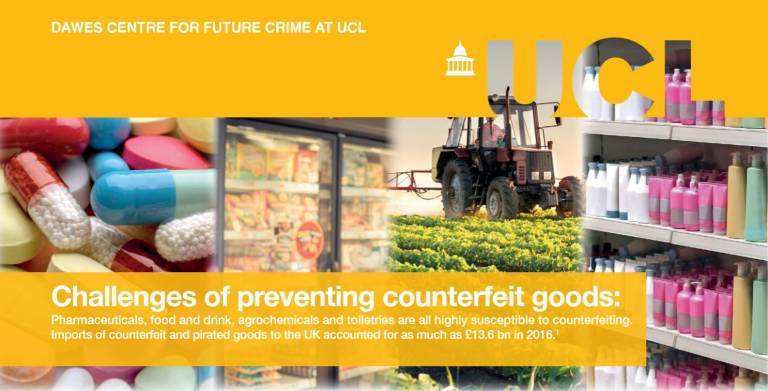Pharmaceuticals, food & drink, agrochemicals & toiletries are all highly susceptible to counterfeiting. Import of counterfeit & pirated goods to the UK accounted for as much as £13.6bn in 2016 (OECD).
Download the policy brief (PDF)
Counterfeiting is a high-profit business on a large scale, affecting all regions and sectors of the world. Counterfeit and pirated goods now make up 3.3% of world trade (OECD, 2019). Global counterfeiting is increasingly a problem for the UK. It is becoming more difficult to spot counterfeit goods at borders and to prevent them from reaching consumers. Sub-standard or adulterated products can pose a risk to consumers’ health and in some cases, may even put lives at risk. Counterfeiting is also detrimental to the economy as producers of genuine products lose out on business. This briefing sets out the issues in each sector and highlights questions that must be addressed in order to tackle the problem.
Lead researchers: Professor Robert Speller, Dr Rob Moss, Dr JC Khong (Department of Medical Physics & Biomedical Engineering), Dr Chiaki Crews (Open University, formerly UCL Department of Medical Physics & Biomedical Engineering).
Funder & Key Contributors: This work was carried out by the Dawes Centre for Future Crime at UCL. This briefing was produced in partnership with Florence Greatrix at UCL STEaPP’s Policy Impact Unit. The research was funded by the Dawes Centre for Future Crime at UCL.
Output type:
Policy briefing
More details of the research and links to research publications are available here.
 Close
Close


